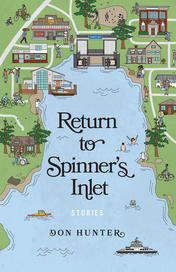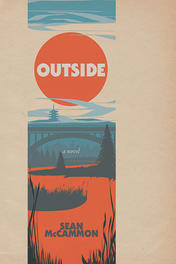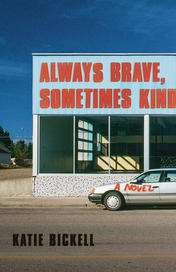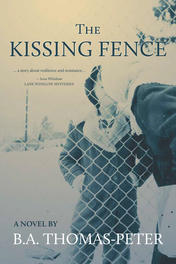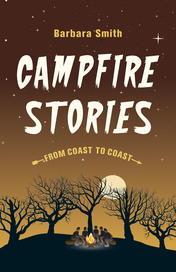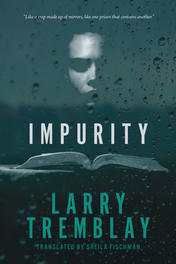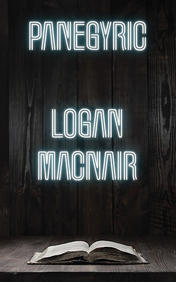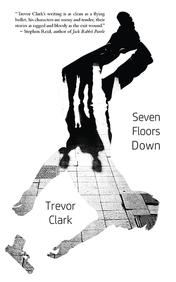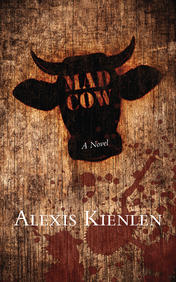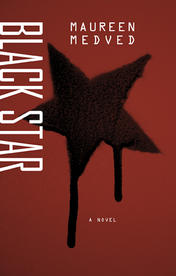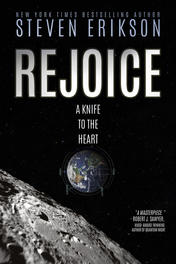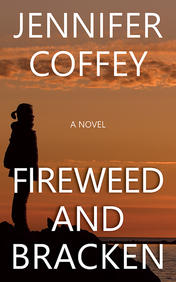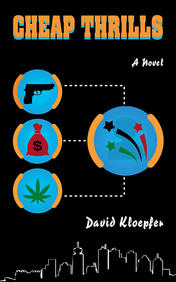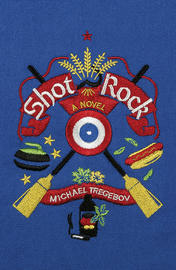About BC Books Online
BC Books Online was created for anyone interested in BC-published books, and with librarians especially in mind. We'd like to make it easy for library staff to learn about books from BC publishers - both new releases and backlist titles - so you can inform your patrons and keep your collections up to date.
Our site features print books and ebooks - both new releases and backlist titles - all of which are available to order through regular trade channels. Browse our subject categories to find books of interest or create and export lists by category to cross-reference with your library's current collection.
A quick tip: When reviewing the "Browse by Category" listings, please note that these are based on standardized BISAC Subject Codes supplied by the books' publishers. You will find additional selections, grouped by theme or region, in our "BC Reading Lists."
Discover BC Books Online, the most comprehensive, current, and easy-to-use database of books and ebooks published in BC, by members of the Association of Book Publishers of British Columbia.
New and Upcoming Fiction Releases
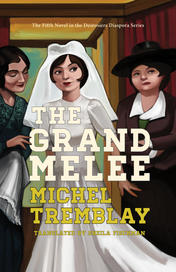
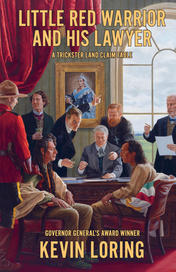


Sky Burial
Pain seared up Icabus' leg forcing him to stop and wince.
He wheezed through one lung, and the mall blurred around him. Hecoughed and his chest sounded and felt as if it were stuffed with thebroken glass of grey light bulbs. This was it: he was dying. The Creemedicine had him.
In his reflection, Icabus hated what he saw. I'm not that skinny,am I? He was bleeding inside and felt so weak. "I seen betterlookin' corpses." Something had blown behind his left eye earlier thatmorning, causing his ears to ring.
The bird. It was dying in front of him. He didn't know what thebird was called but was awed at how bright and blue the feathers were.Parakeet? Parrot? No, he knew it wasn't the true name of thebird's tribe, and he wished he knew. He thought of all the shampoo bottleshis daughter Augustine had and chose the one that smelled the best.
"Papaya," he said. "That's your Dogrib name now: Papaya."
The pet store, which showcased the bird, held it in a cage. Thebird measured three feet from black beak to bright blue tail, yet the cageonly offered four. A sign read: "Do Not Tap Cage." The bird was upsidedown, shitting on itself and biting at the chain that sliced into its leg.The bird, he thought, deserved something far better than this.
Oh, how Icabus wished to be around fire. He was sure thebird was a woman. She panted; her black tongue licked at her swollenankle. She hung awkwardly, rested, shivered, tried to bite at the chain,fell back, shivered again. It looked as if she were drowning. Icabuswatched the bird and felt under his shirt where he was bleeding inside.It was as if he had been force-fed thousands of porcupine quills thatwere growing with each breath. He pressed into his left rib cage as hestrained to open the cage.
"Macaw," a voice said suddenly behind him.
"Huh?"
"It's a Macaw."
Icabus turned to look at the wielder of such a firm voice. Itwas a child. An Indian girl. Tall, slim. She was beautiful. Her eyes werelarge and round. She wore a T-shirt with a huge white owl with yelloweyes on it. A younger white boy with a runny nose came up and startedbanging on the cage. The girl left as fast as she had appeared. Icabuswanted to talk to her, but he was hit again with pain. He coughed andcoughed and coughed. He held himself up against the glass and lookeddown until the reddest blood dripped from his mouth. He had to hurry,but where was the sign?

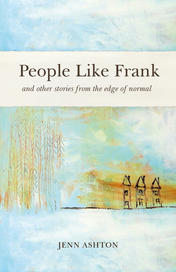
From the story, “People Like Frank”
The new microwave has a reminder function on it. It’s so you won’t forget that there is something in it, which we used to do all the time with the old one. You’d open it in the morning to find yesterday’s cup of coffee, a cold half-baked spud or the like. Frank calls it the “senile setting” and the beeping drives him crazy. And it makes him angry that he needs it.
He’ll start off a project, like replacing the bathroom fan, and then he ends up over across the other side of the house cleaning the rust off the porch light, every counter and table in between full of tools and bits. And then he gets mad that he forgot what he was doing and stomps back in to finish installing the fan. In the meantime, he’s forgotten that he was warming up his second cup of coffee. Now the new microwave beeps at him, and he gets mad again. I’m getting used to him getting distracted, but I still hate the mess.
In the old days, our apartment was tiny and I had to clean up after him if I wanted to make supper or have a place to fold the wash. Over the years, he got better about putting things away. Now when I come across a hammer or other tool left out in the rain or the rake leaning up against the fence, looking lonely and forgotten, I know it’s not on purpose; it’s that Frank doesn’t remember what he was doing with it. We usually come across these things in spring, when the snow melts. I’ve stopped blaming him.
I think he has a bit more pride or maybe it’s shame, and he’ll come back and start to tidy up until he gets mad again and starts throwing things when he can’t fit them back where he got them from. He’s like that, flashy temper. There are lots of reasons why people get angry sometimes, and I think he’s made up of all the reasons. He just can’t help himself—it’s such a habit. I’m used to it and I don’t much like it, but I put up with it. I can’t change him.
It didn’t use to be this way. Frank has always been the kindest person. If you needed help moving, you didn’t even have to ask, he would offer up and just be there with his truck, a pizza and a six-pack of beer. Back in the day, I would find him underneath the neighbor’s car changing the oil, driving somebody across town to an appointment, or professing to me in the quiet and dark dawn that he wanted to be a better man. He would do anything for anybody, even people he didn’t know. If you ask any of our friends, they would say he is über thoughtful and helpful. People like Frank. He is a small man with a big heart. I used to call him my love extremist.
Back in those days, nobody ever saw a temper, and I don’t think he was angry very often, and if he was, it was only in private. Like when he would read of an injustice in the news and stomp around for a while trying to help find a solution, then send off a fiery letter to the editor offering up some suggestions. It was a gentle kind of anger, I wouldn’t even call it anger; it was just passion and I was never afraid of it.
That is the Frank I fell in love with. And even though I know something about genetics, and even though I knew his parents and could see the life he came from, especially when they both fell into dementia themselves, I never imagined it would happen to him. Perhaps I was just naive or didn’t want to know. When you are first in love, the last thing you think of is the bad or tragic ending that could be yours. It’s hard to see past your next date, lovemaking session or first child, let alone thirty or forty years down the road when the change that has maybe started to happen on and off finally gets itself together enough to turn the gentle, funny and talented man that you loved into a monster that you now can’t stand. Your own balance slides back and forth between compassion and fear, and the blankets bunch up between you in the bed like a new third person whose name is Apathy, because I’ve stopped caring altogether. It’s hard enough just keeping up with him most days, never mind feeling regret. I can’t—there’s just no time in my day.
Sometimes Hate is his second name, like this morning when it slapped me in the face.
The dog’s shit smelled like a hundred dead rotting things, and the putrid after-scent woke me out of a dead sleep and I felt exhausted at the thought of having to clean it up. The dog woke up ill, Frank said, but wouldn’t tell me why. He was afraid to—probably the dog ate something on the trail or on their final toilet walk of the night. Sometimes he gives them big chunks of cheese without me knowing because he’s afraid to lose their love, especially when they curl up with me at night—I can feel they are tense around him. But for the mess, Frank just let me deal with it, instead of possibly making himself feel worse because he can’t focus enough. He gets distracted, and I don’t blame him, it’s not him, it’s the disease and that realization makes me have all the feelings.
It’s hard being a parent to your spouse, having to remind them when to eat or shave or when to take their medications or vitamins, when to put on clean clothes or even take a shower. It’s all hard because you never see it coming. Frank and I were so in love and had our routines down, there were no cracks in our mutual armor, “us against the world” for so many decades, thousands of miles or happy road trips, writing songs and reciting poetry over breakfast, such a solid and complete life that you don’t see the cracks when they start to form. The little niggly things that at first you write off to allergies or a cold, or a sleepless night. A surprise fight that blows up out of nowhere like a spring storm or a pair of socks shoved in the cutlery drawer. Misplaced reading glasses that you find months later in the freezer. Then you start to wonder what’s going on. If I would have known then what I know now . . . I’d seen both of his parents with Alzheimer’s, why didn’t I anticipate it? After years of watching parents and our friends come to long, sad endings with various dementias, why didn’t I see? I berated myself for some time but I think the answer is that I didn’t want to see it, my denial was so strong, and I was just tired, tired to think that old life was still following us around, but this time without an escape, because it was in our own house and our own bed and not some miles away in another town, somebody else’s problem to deal with. I was just too tired to see it.
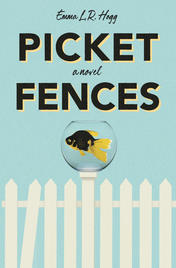
From Chapter One
On the morning of Sloane Sawyer’s thirtieth birthday, Roma gifted her daughter a fitness tracker.
“It’s as addictive as smoking cigarettes, only it’s good for you!” Roma boasted, rolling up her sleeve to show off her own.
Who gives their daughter a fitness tracker? A mother who thinks their daughter is fat.
Roma had been waiting in her car in the driveway for Sloane and Jason to wake up. She would show up like that, driving forty-five minutes from Tippett Valley to Torren Hills without warning. She claimed that if she called first, Sloane would tell her it wasn’t a good time. She was probably right.
“This one’s for Jason,” she said. From her purse, she removed a second wrapped gift—the same shape and size as Sloane’s.
It’s my birthday—why is anyone else getting a gift?
Roma set the box on the counter. “Something the two of you can do together,” she said.
“You mean, like you and Dad?”
It was a mean thing to say. That Roma and Edward would soon be married thirty-two years still amazed her.
“Now that your father’s retired, I see enough of him at home,” said Roma. “Try it on.”
The fitness tracker was the wrong size for Sloane’s wrist. Small. She couldn’t even get the buckle to meet the last hole. To avoid an argument, she accepted the gift receipt and promised to exchange the band for a larger size.
“Mom, I’ve got to get ready for work.”
Roma sat at the kitchen table. “There’s one more thing.”
Sloane rolled her eyes. “What?”
“I’m going to China!” Her arms rocketed above her head.
Roma had never been anywhere, had never been on a plane, had never crossed a border, and she had chosen China as her first trip. Come September, she would be out of the country for two weeks. She told Sloane she picked China because of a Greg Brown song of the same name. She didn’t care that the lyrics were a metaphor; she was actually going to be in China.
“With Dad?” asked Sloane.
Edward refused to go—not during the NHL pre-season—which was likely the response Roma had expected. Edward was the reason for the trip. Since retiring from the steel plant, he rarely left the house, and the house had always been Roma’s space.
“With Vivian. We’re applying for visas this afternoon. I need a break from your father. He wants to tell me everything.”
“Isn’t that a good thing? Couples go to therapy to learn how to be better communicators.”
“He’s over communicating,” Roma complained. “I don’t need to know everything your father’s thinking. I don’t need to have each of his movements narrated.”
“Narrated? Really, Mom?”
Roma lowered her voice. “‘I’m hungry,’” she said. “‘I’m going to heat up some soup. I’m going to do that now. Just got to get out of this chair. Oh, the floor is cold. Better put on my slippers. I wonder who won the Leafs game last night. Better look that up to see if it affected my Bruins in the standings. Darn, I forgot to plug the phone in last night. Remember the days when phones just stayed plugged in? Fifty-five seconds for the soup. Last time, I heated for a minute and it was five seconds too long—’”
“Okay, I get it.”
“All day, Sloane.”
“Is that why you picked China, to get away as far as possible?”
“I’ve always wanted to go to China.”
“No, you haven’t.”
“How do you know?”
“You’ve never mentioned it before.”
“I don’t tell you everything, Sloane. I’m not your father.”
“Dad doesn’t tell me anything.”
“Lucky you.”
Sloane dropped it. Roma hummed the Greg Brown tune. Sloane tightened the drawstring of her sweatpants and wondered if her own best friend would go on a trip with her.
“I ran into Joe Harrington yesterday,” said Roma. “He was downtown buying glue for his model airplanes. Told me he’s looking for help loading some old wood.”
Sloane’s body tightened. “Their old picket fence?”
“He’s finally clearing out his garage. I gave him Jason’s number. Joe said he’d pay for the help.”
Sloane pushed her glasses into her face. “Jason’s not doing odd jobs anymore.”
“Sloane, it’s the Harringtons.”
“Maybe instead of taking the wood to the dump, they should just put the fence back up.”
“Why are you being so defensive?”
“I’m not.” She was. Sloane backed down.
Around Roma’s wrist, her fitness tracker vibrated, alerting her to move. With exaggerated swinging arms, she began walking laps around the kitchen table.
“Will you check in on your father when I’m away? Make sure he’s scooping out the ashes from the fireplace, emptying the garbage, eating. I don’t want to arrive home to a corpse.”
Sloane groaned. “Mom, he’s an adult.”
“Not a very good one.”
“Can you sit down, please? You’re making me dizzy.”
Roma read the screen on her fitness tracker. “In eighty-four steps,” she said.
Sloane pointed to the band on her mom’s wrist. “What size is yours?”
“Medium.”
“And you thought I was a small?”
“You know I always think of you as my little girl.”
“Mom, I’m thirty.”
“You haven’t grown an inch since thirteen.”
In Grade 8 Sloane had been five foot four inches. She hadn’t grown in height, but her weight had changed by twenty-
five pounds. The last time she had stepped on a scale she weighed in at one hundred sixty-two pounds, seventeen pounds over the ideal weight on the chart pinned to the wall in her doctor’s office.
“How was work yesterday?” Roma asked.
“The worst.”
“Every day can’t be the worst.”
“It can if it is.”
Roma’s face lit up. “Jason!”
Jason Howard walked into the kitchen. His short, spiky hair was wet from a shower and his face clean-shaven. “Hello, Roma,” he said, showing off his dimples.
Roma stopped circling the table. With outstretched arms, she crossed the kitchen floor. “I’ve asked Sloane to check in on Edward when I’m away,” she said, placing her hand on Jason’s arm. “I’m going to be in China for two weeks in September. She’s putting up a fuss about it. Maybe you wouldn’t mind?”
“I wasn’t putting up a fuss,” said Sloane, sounding like a child. “I was merely stating that Dad’s an—”
“I can stop by the house on my way to the plant,” said Jason.
“Oh, thank you!” Roma swatted his shoulder and then kissed his cheek. Her lips lingered. Jason didn’t dodge Roma’s kisses or escape from the room when she visited. Sloane knew how important his mom had been to him; how Roma filled the void Roseanne had left when she passed. “Such a big heart,” Roma said, rubbing Jason’s arm.
Are you flirting with my husband? It briefly occurred to Sloane that Roma might be compensating for her daughter’s shortcomings. And maybe Roma found in Jason what was missing in Edward. Sloane’s dad wasn’t a demonstrative man. He showed his affection for his wife by renovating the house, by purchasing stocks in her name and by not wavering when she came to him with an idea like wanting to go to China with her best friend.
“Sloane?”
“Yes?” Her mind had drifted.
“Great!” Roma beamed. From the doorway, she blew a kiss from her palm. “Happy birthday!” Then just like that, she was gone.
“What did I agree to?”
Jason took Sloane’s hands. “Happy birthday.”
“Jason, what was it?”
He wrapped his arms around her, holding her tightly. She sucked in her belly so that it wasn’t pushing into his.
“You’re worried I’m going to run out there.”
“Maybe.”
When Sloane squirmed free, Jason shot out his arms to block the doorway. She tried to pass and he enfolded his body around hers, playfully clawing at her sides.
“Jason, let me go!” Slapping at his arm, she laughed and snorted. She couldn’t catch her breath.
Finally Jason stopped tickling, and Sloane heard Roma’s car pull out of the driveway. “There,” she said, rotating in her husband’s arms. “Tell me now.”
Jason didn’t let go; he held her close. “Kiss me,” he said.
Sloane leaned back. “I haven’t brushed my teeth.”
“I don’t mind your morning breath.”
She pecked Jason’s cheek.
“Your mom kisses better than that.”
Sloane slapped his chest. “You know she has a crush on you.” She was only half-joking. Does she wish she had a son? “I think you’ve got a crush on her, too,” she added.
“I think we’re just both lonely.”
Disappointed, you mean.
Disappointment and loneliness were similar. By thirty, Jason had planned to be a video-game developer, not be sitting in a crane all day moving coils of steel so he and Sloane could cover their bills. Each summer he was supposed to be repainting the white picket fence around their house. He was meant to be a father.
“Because it’s your birthday,” he said, “I’ll give you a one-up.”
“A what?”
“A do-over. A second chance. A new life.”
Sloane sighed, loudly. “A video game term.”
He closed his eyes and puckered his lips, waiting.
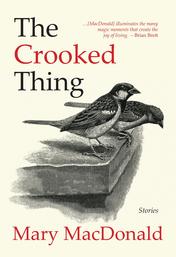

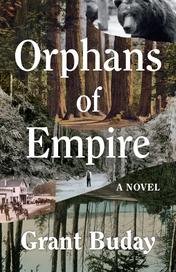
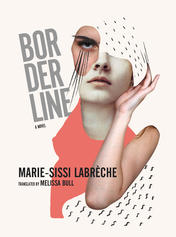


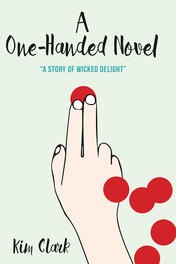

That night, their first night on German soil, was spent in a dank cellar with masses of rubble—stability uncertain—above them.
“The Germans started this mess and look what they’ve done. It’s their turn now,” Sandy said. There wasn’t an ounce of sympathy in his body.
“Well, I hope the civilians were evacuated, the women and kids and old people. I’m guessing we’re liberating some of them from Hitler too,” Stan said.
Sandy shot him an angry glance. “You can’t tell me the majority of them weren’t cheering Hitler on when it all began.”
They waited for the call to form up and head to their latest start line, the main road between Calcar and Goch. But the call did not come so they did not head into battle the next day. Instead they waited. And while they waited, the rookies fought to contain their panic, grateful for the sense of surety the veterans provided. The veterans contemplated their own mortality, wondering how the hell they’d made it even this far.
The Major had briefed them all on the plan. “We’ve been ordered to capture the Goch–Calcar Road and the start line is here.” He pointed on the map. “The road runs northeast and almost through the Louisendorf crossroads. Our objective is to seize the high ground southeast of the road. This is it, Operation Blockbuster. We’re to go approximately three thousand yards beyond Louisendorf to take the ridge.
“It’s a two-battalion front. The attack will be made over open country. Kangaroos will move both battalions. We’ll be on the left and the Essex on the right. The Royals are in reserve behind us and we’ll get support from the Fort Garrys. Plus, the Toronto Scots are supporting us with machine guns and mortars. We’ll follow the two lead companies. We’re mopping up. We’re facing an upward slope, and we don’t know what’s on the other side.”
Ewen looked at Reggie, who dropped his head. No, we don’t know what’s on the other side, do we, my friend?
“Remember,” concluded the Major, “Ground once taken is never given.”
Two days later, Ewen and Reggie were leaning against a damp wall, sitting on their groundsheets as the dawn made the overcast sky slightly less gloomy, though hardly bright. “That sky looks like rain, I think,” said Reggie. “But I don’t know this sky, so maybe I’m wrong.”
“Going to make the roads even worse,” said Ewen, looking at the mud. “If that’s possible. Kangaroos will struggle.”
“We’ll be on foot anyway. Trust your feet, Ewen. Remember?” Reggie smiled, then stopped, looking up to the sky once again. “I never thought I would come this far. Germany, it’s a long way from home.” He shook his head. “I wonder if I’m the first from my reserve to be this far from our land.
“This will be my last fight. I won’t make it. I’ll be heading over that hill and not returning.”
Ewen was alarmed. They never spoke about the future. “No, Reggie! Don’t talk like that.”
“It’s how it is. I know,” said Reggie.
Ewen had heard of visions and knew some in his own family had them, but it wasn’t talked about. He was keenly aware that death was the war’s dance, and no one knew when their waltz would be over. “You and me, we’ve made it this far, and we’re not going to end up under a white cross out here.”
“You’re going to make it. Ewen. You’ll be around when it’s all over.” Reggie put his hand on Ewen’s shoulder. “Remember, visit my mother when you get back to Canada.”
Ewen stared into his friend’s eyes. He nodded, hoping this was a promise he would not have to keep. He didn’t ask about Rose.
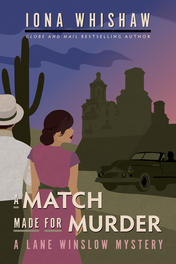
CHAPTER ONE
November 1947
Lane’s first impression was of the whiteness. The mid-afternoon sun, which she had always thought of as golden, bleached everything here to the purity of bones. The endless desert had given way to adobe and wood houses that seemed to lie low away from the sun, and then to the white of the station they were approaching.
Her honeymoon. It was ridiculous and wonderful. A year and a half before, she had arrived at King’s Cove, a tiny hamlet an hour outside of the city of Nelson, in the middle of British Columbia, and moved into her beautiful house among her eccentric neighbours with no other object than to lose herself, and her memories, and put the war behind her. The danger of dropping out of airplanes into occupied France carrying weapons and encrypted messages began to seem more and more like a life that had happened to someone else. The misery of her first love affair had been swept away, almost against her own better judgement, by Frederick Darling, inspector of the Nelson Police.
She looked at him now, his dark hair slightly tousled from leaning against the window, and her heart skipped. They’d had a bad start, she had to admit; he had arrested her over the death of a man on her property. He was extraordinarily reserved, not to say impenetrable, but he had come, very slowly and most reluctantly, to accept that she had some skills that were invaluable in some of his other cases. And she in turn had come to appreciate his profound sense of justice, and his philosophical turn of mind, perhaps a product of his surprisingly academic background. She had not expected a degree in literature from a policeman. She wondered if either of them had realized how completely they were falling in love. She smiled. She was pretty sure his sidekick, Sergeant Ames, had. She wouldn’t have been surprised to learn it was he who had pointed it out to Darling.
“Not terribly punctual. It’s gone two forty-five,” she said, consulting her watch. The train screeched, as if protesting at having to slow down, and then stopped and hissed. People began to stand up, stretch, and reach for their bags. It had been a long day’s ride from Los Angeles.
“You want precision on a honeymoon. How delightful!” Darling said. “It’s hotter than blazes. I’m overdressed.” He took his hat off the seat and fanned himself. “Well, shall we?”
A porter appeared as they stepped off the train. Lane paused and took a deep breath. She loved arriving in a place she’d never been. Warmth emanated from the tiles of the platform and off the white walls of the station, but a breeze made the movement of air almost sensual on her face.
“Can I get your bags, sir, ma’am?”
“That would be lovely, thank you,” Lane said. “What is the temperature today?”
“A balmy seventy-eight, ma’am.” The porter touched his cap briefly and led the way to baggage car, pushing a trolley.
“You see, darling, a perfect summer day at home. My husband thinks it is too hot,” she continued to the porter, following him, her handbag over her arm.
“Oh, no, ma’am. This is just how we like it. Summertime? Now that’s a punishing time in Arizona. It can get up over a hundred. You just wanna crawl under a rock like a lizard. Vacation?”
“Honeymoon,” Lane said, and was slightly embarrassed to feel her cheeks flushing.
“Well now, that’s something! Congratulations and welcome to Tucson. Will you be needing a taxi?”
“Yes,” said Darling, “thank you.” He reached into his jacket for some coins.
The station platform felt almost ghostly in the white afternoon despite chattering travellers getting on and off the train. Lane and Darling followed the porter into the station, where it took her a moment to adjust to the darkness. Inside, the shade contrasted sharply with the blinding light of the street visible through the windows. Sharp, she decided was the operative word. Sharp shadows, sharp light, sharp lines.
“Where shall I tell the driver y’all are headed?”
“The Santa Cruz Inn,” Darling said. He produced the coins and the porter tipped his hat, turning a beaming smile on Lane.
“You have a wonderful honeymoon, you hear?”
“You made a conquest there,” Darling remarked, settling in the back seat of the cab after asking to be conveyed to the Santa Cruz Inn. “I wonder how Ames is getting on?”
“Don’t be silly. We’ve only been gone four days. This is a complete vacation from mayhem. We’re going to get along like a house on fire because I won’t be interfering in anything. I plan to lie by the pool with an edifying book during the day and make up for it by swilling cocktails in the evening. I hope they have cocktails.”
“They got cocktails, ma’am,” the driver said suddenly from the front seat. “You got the best there. All the actors go there. Very swanky. Pretty new, too. My sister Consuela works there, cleaning.”
“Oh, is it far?” she asked—the driver looked Mexican, and Lane had expected him to speak with an accent. She gave herself a stern mental correction.
The driver took a moment to honk at someone, slowed down to wait for a tram to go by, and then turned onto Sixth Avenue. “It’s a few miles out of town, just east, but I could drive you just a couple of blocks near here to see the old part of town.”
“Why not?” Darling asked, when Lane gave him a nod.
Lane looked at the town outside the car windows. They passed a massive pink building with a red-tiled roof and a huge mosaic green and yellow dome. A row of columns connected by arches provided a long, shaded walkway. She could just see the courtyard beyond the arches.
“What is that wonderful looking place?” Lane asked.
“That’s the county courthouse. This here is the old part of the city, called the Presidio. The Spanish came here first, and you’ve got some very fine houses in here. I’ll just drive you along Fourth Avenue so you can see. It won’t take a minute.”
Lane threw herself on the bed of their suite. “This is heavenly! We were right to pick this. All this lovely adobe. It could almost be Mexico. I feel like I have been transported to a completely foreign place. And this weather! It is hard to imagine that somewhere in the world it is this warm on the ninth of November. We’d be in our wool shirts at home.”
Lane had seen the travel brochures for Tucson at the travel agency on Baker Street and had been attracted to the sunny desert landscape, perfect for a honeymoon as November ushered in the damp cold of a British Columbia winter. “We could go to a dude ranch,” she’d said, spreading the brochures across the table one evening.
“Are we dudes, do you think? I have decidedly negative views on dressing up in chaps,” Darling had said. “You know, I have an ex colleague who moved there in ’37. He might have an idea for a less energetic holiday. I’ll write to him.” And indeed, his ex-colleague, now the assistant chief of police in Tucson, Paul Galloway, had recommended the Santa Cruz Inn, adding that it was a favourite of Hollywood movie stars.
“You have been transported to a foreign place,” Darling pointed out. While not of a demonstrative turn, he was quietly relishing the sunny warmth, not to mention a completely new sensation to him; the feeling of truly being on holiday, with no responsibilities and nothing to do but enjoy the company of his new and beautiful wife. He hung his jacket in the closet and rolled up his shirtsleeves. His tie was already discarded on the dresser. He looked at the suitcases.
Lane smiled. “Let’s not unpack now. Let’s just get out the things we need for tea. I’m astonished they have a good old English tea here, and,” she glanced at her watch, “it’s on in fifteen minutes, and I don’t want to miss it. We can see who our neighbours are.”
Darling kicked off his brogues and lay down on the bed, scooping her into his arms. “I don’t care who the neighbours are.” He kissed her in a way that suggested they stay put awhile, which Lane found almost irresistible.
“We should see if we can find Consuela, the cabbie’s sister,” she said through his kiss.
“I’ve never met a woman with less sense of occasion. You are not easy to love.”
“I’m sure you knew that when you married me. Come, up you get! We didn’t come here to while away our time in bed.”
“I should have thought that was exactly why we came,” Darling protested, swinging his legs onto the floor.
They walked along the brick path past neat rows of flowers and green lawns, to where a fountain splashed in the centre of a large lawn surrounded by palms and other trees Lane couldn’t identify.
She clutched Darling’s arm. “Oh, listen!” she exclaimed, holding up a finger.
He duly tilted his head. “To what, in particular?”
“That cooing . . . mourning doves! One of my favourite birds . . . we had them in England.” They stood together in companionable silence and became aware of several types of birdsong, the soft cooing predominating. Lane sighed happily. “They always sound so peaceful. I feel as if nothing bad could happen in a place where they are.”
The library, modelled, Lane decided, on some fantasy European manorial room with dark ceiling beams and a long wall of books, was abuzz with quiet chatter and the clinking of cups. The women were in bright summer dresses, some sporting wide-brimmed straw hats and others pert little numbers with wisps of veil set at becoming angles. A couple of younger men in pale linen trousers stood by the massive unlit hearth with their elbows on the mantel, smoking pipes. The place had the confident, quiet feel of money.
“Those two by the fireplace look just like the brochure,” Lane whispered. “Do you think they stay there permanently on the off-chance they’ll be photographed? Oh. What have you got? I missed those.” She pointed at a pair of tiny scones on his plate.
“They’re over there. You’re not having mine.”
Lane left the little round table they had managed to get and went to where the scones were laid out, wondering if it would be greedy to take two.
“This is gorgeous, sweetie. I don’t think I’ve ever seen nothing . . . anything like this. You’re spoiling me, you know that?”
Lane turned with her scones and saw a woman, possibly in her mid-thirties with frizzy, nearly white bleached-blond hair in a pre-war Bette Davis style. She was wearing a deep ruby shade of lipstick that Lane wasn’t sure about for the time of day. The man she giggled at, the man she held up her china cup to toast, was considerably older. Lane would have said he was into his seventies. He was slight and perfectly dressed in white slacks and a blue blazer, and his full head of white hair was brushed and Brilliantined into a side part. She could see a heavy embossed gold ring on his right hand and a simple wedding band on his left.
“A bit spring–winter, that couple, wouldn’t you say?” she whispered to Darling, pointing surreptitiously with her buttered scone a few moments later.
“I would. But would it be any of my business?”
“Perhaps not, but we were interested in finding out who our fellow denizens are. I think it’s rather sweet, really.”
“I believe it was you who was interested in our neighbours,” he said. “I bet he’s being taken for everything he’s worth.”
“Or he’s taking her for everything she’s worth,” Lane said.
“She doesn’t look like she’s the one with the money,” Darling countered.
“Are you telling me the only thing women value is money?”
“I wouldn’t dream of it,” Darling said, selecting a petit four. They chewed contentedly for a few moments, and then a young couple came up to them smiling. The woman was lovely, Lane thought. Tall and slender with golden hair twisted into an elaborate knot. She was wearing a simple, graceful, cap-sleeved linen dress with pale blue stripes.
“I think you folks are our neighbours. I saw you come in earlier. We were just leaving to go have a dip. Isn’t this grand?”
Darling and Lane stood up. “I’m Lane, and this is my husband, Frederick Darling. How do you do?”
“I’m Ivy Renwick, and this is Jack. We’re from Wisconsin. We don’t get anything like this back home! We just came yesterday.”
Darling nodded and shook hands with them. “We don’t much either. We’re from a little town in British Columbia.”
“Oh, my! Canadians. You’re a long way from home. What brings you out this way?”
Jack Renwick had pale, straw-coloured hair and very genuine blue eyes. Darling liked him at once.
“Honeymoon,” he said with a slight touch of apology.
“Hey! Us too. We got hitched just before I shipped out in ’44, and we never got a chance to have a honeymoon, so we’re having it now,” Jack Renwick said.
“We should meet for cocktails and then have dinner one night. I saw Clark Gable just checking out as we were arriving. He was staying in one of the villas!” Ivy Renwick said. “What about tomorrow?”
Ambling through the garden later, Darling said, “I can’t think when I’ve met a more perfect couple. I suppose we will have to follow through and have dinner with them tomorrow?”
They stopped by a little planting of cactus. “You say ‘perfect’ as if they were boring.”
“I’m not saying that, but they do seem almost too good to be true and are probably regretting the impulse to socialize already. I know I am,” Darling said. “Apparently the Native people in this part of the world could peel and eat these things.” He was pointing at a cactus helpfully labelled nopal. “Which reminds me, should we go and have a swim before we have to get ready to go to Galloway’s for dinner? I have a feeling the temperature starts to go down smartly when it gets dark.”
—From A Match Made for Murder
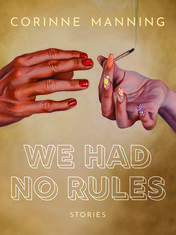
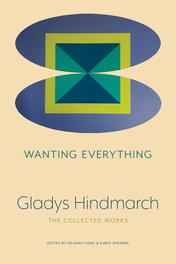
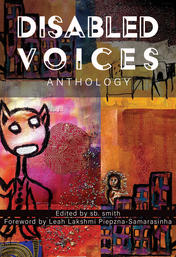
Dear Wheels: A Letter of Thanks to My Wheelchair, by Rebecca Johnson
Dear Wheels,
You help me move freely in this world and soar to the highest peaks, but why can't others see how you help me fly? Instead, they see a woman in a chair who needs help with every single thing in her life. In reality, you give me the independence to rise above that ignorance and know that I am capable and eager to live my life to the fullest.
While other parents taught their infants to walk, mine patiently taught me how to use my hand to direct you. I would win races against other children who did not see the difference between their running and my moving. My childhood friends didn't even notice you. They only saw a girl who was fun to play games and dolls with.
As a teenager, I started to hate you for you scaring the boys away. They would only pay attention to the wheels, not the girl who had a crush on them. I hated you for pushing them away, making them disgusted at how different I was from all the other girls. If only I was not tethered to you, if only I could walk then I would have a boyfriend too and the rest of my life would be easy, right? Even though I directed all my hatred at you, you still rolled me forward and never left me helpless. You took me across the stage to graduate high school and then rolled me into adulthood.
I liked you again in college. You waited patiently as I was stationary at the computer desk with my studies. You understood that we would not go anywhere in this country as a Disabled woman without an secondary education. So, we went across stage together again twice more, shocking the crowds and receiving loud cheers because we inspired them. But we didn't do it to inspire others. We did it out of necessity to survive in a world that looks only at the aid, not the person sitting in it.
We became one during those years, ignoring crushes and doing what was cool. I was never ashamed of you as people stared at us in public, prayed over us without approval, or took pity on my life. You empowered me to ignore those who didn't understand and to keep going forward in life.
Now, we live a full life. You get me to work where I counsel those who are able but discouraged by their normal struggles. Then, you get me to the classroom to teach freshmen in college. They say, "those who can't, teach," but I definitely can because of you!
After work, you bring me home to a man who loves me, wheels and all, and parents who would give their lives so my own would flourish. I love my life and it is only possible because of how you move me.
Thank you, Your loving passenger
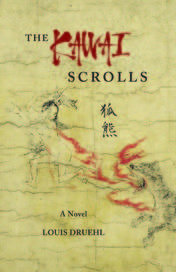
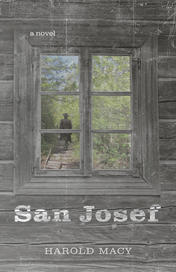
From Chapter One: San Josef, October 1898
The tide rose, a confused surge of swirling backwater and troubled currents. It was a twice-daily conflict—the might of the Pacific against the sodden runoff from the forested hills and swamps of this north end of Vancouver Island. Clayton Monroe hunched in the battered rowboat and flailed with the oars as he rounded the last bend from his cabin on the bay to the upriver store. He could have walked the half mile but he hated the sucking muddy trail even more than he distrusted the capricious river. Though he had been at San Josef for nearly two months, his skill with a boat had not improved. He skittered across the current like a Jesus Bug, swinging back and forth with each heave on the oars.
Elbows resting on his bony knees, he stopped rowing for a moment and peered at the dense coastal forest of cedar, hemlock and spruce—searching one bank then the other for any sign of watchers, the feeling of eyes in the trees so fierce. Monroe twisted his old body around and glared up the river alert for that still to come, then back downstream to what lay behind him. Old habits were hard to break. At one time, he would have seen or feared something vengeful behind each tree. Now he simply thought: this is no place for a horseman. But some refuge. Good enough.
His lean face was sheltered by a wide-brimmed hat sagging in the drizzle, a tattered eagle feather stuck in the leather band. A blue neckerchief knotted around his neck collected the seeping trickles. Under his long oilskin coat he wore a grey woollen shirt tucked into threadbare corduroy pants a size too big hitched around his waist by a belt, the tongue dangling. Another hand-me-down.
He passed a marshy area covered in reeds nodding in the sea breeze. There was only a narrow fringe between the sedges and the cedars’ shadow where the land grew drier, giving way to a sliver of grass—nothing he could call a prairie or meadow. But beyond the trees was the green glint of the pasturelands reclaimed from the estuary. He saw the small figures of men toiling on the protective dyke and the floodgate.
Looking out over the tall grey-green salt hay growing on the mudflats, up the side sloughs better known to muskrat and heron, he glimpsed the scattered cabins of the colonists. Only a few showed signs of life—a faded curtain, a worn axe leaning against a woodpile. Most stood abandoned, black windows blown in like half-shut eyes squinting against the rain, the wind, the inevitable. Roofs sagging under the accumulation of moss.
Must’ve been lively when everyone was still here and believed in what they was doing, he thought. Coming this far, doing so much, getting so little. What do they call it? Utopia? A perfect society? Not likely if mankind has anything to do with it. Only ones left now are the diehards. There’s another funny word. Diehard. Nothing hard about dying. It’s the living that takes the effort. Just ask the missus and her family, or the handful still trusting in what they do. Huh—who am I to say what’s sensible. Look at me, sopping wet in this damned chip of wood on a river that don’t stay still.
He drifted and pulled past orchards gone feral, taken over by the patient tangle of salmonberry. Gardens made fertile by seaweed and manure then forsaken and forgotten. Rail fences no longer kept anything in or out, turning grey with tendrils of lichen spreading out like plates serving up a dinner of decay.
The only sound was the hissing of the rain on the river and the rumble of waves breaking on the distant beach. Overhanging branches dripped onto glossy green salal and feathery arcs of fern. When the wind from the open sea parted the mist briefly, all Monroe saw were more dark hillsides, more shards of orphaned cloud like wet smoke snaring the dead spike tops of the cedars, rising like a soul’s last breath.
Bracing his feet on the boat’s floorboard, he stretched his aching back and shoulders then grabbed the oars for a last lurch to the small wharf. At the end of the boardwalk was a building adorned with a neat red and white sign, the only blaze of colour in this grey and green valley: General Store and Post Office, Colony of Cooperative Adherents, San Josef, British Columbia. Anika and Rolf Frederickson Proprietors, Est. 1892. It didn’t seem right to him, having a woman’s name up on a sign for everyone to see unless it was a boarding house or brothel. And why wasn’t his name first? Adherents? To what? Strongest survive, the others fall by the wayside. Cooperation may’ve worked in that country they came from, but he never saw the likes of it in his life. Drops fell from his hat as Monroe shook his head.
In the cabin he had inherited on the bay, there was a small book, The Cooperative Commonwealth by Laurence Gronlund, a Dane who had immigrated to America in 1867. Monroe glanced through it but found little to hold his interest. Still, he realized the book outlined what kept the people at San Josef.
The boat bumped against the landing and he stumbled onto the rain-slickened boards to tie the frayed rope with fingers stiff from the oars. Straightening with a groan, by habit he glanced around again for any movement in the mist, but there was none, except for the listless rise of smoke from the store chimney. Nothing seemed out of place, nothing to arouse wariness. Safe for another day to add to his sixty-some years. The thought pleased him and brought a slight smile to his face.
Satisfied, he walked up the wobbling gangplank and stepped through the door. Water ran off his oilskin coat and made dark puddles on the floor as he stopped to look around the interior. The store was small, dimly lit by the flickering yellow flames of several coal-oil lamps burning even now at this late afternoon in October.
Three men lounging on ladderback wooden chairs around the stove glanced up and gave cautious nods in his direction then returned to their conversation, Danish words singing between them. The lanky red-haired storekeeper stood to greet the newcomer.
“Ja, Mr. Monroe. You have a good trip up the river?” He took the pipe from his mouth and pointed outside with the well-chewed stem.
Monroe did not reply immediately, distracted by the conversation of the other men. They should speak English here in America, he thought. And then remembered where he was and the damp haven it provided.
“How do, Mr. Frederickson. Came for grub, whiskey and bullets.” His drawl was strong and as noticeable as the red sign on the storefront.
Frederickson stuffed his pipe in the pocket of his shirt and turned to the shadows lying deep behind barrels of dried food. Above them were shelves reaching to the high tin ceiling. Most were empty, but some held a few goods—sacks of sugar, cinnamon tins, cornstarch, laundry soap, glycerin, gunpowder and shotgun shells, rye whiskey, pouches of tobacco, boxes of nails, dark bottles of stove polish and brown wrapping paper—things the settlers could not fashion for themselves. Many of the labels were faded and peeling.
“Maybe you want a little warm-up first? Maybe I join you.”
Monroe nodded and moved to a table near the welcome heat of the stove. “Yeah, I need something for these old bones. Seems like the whole sky is down my neck. How do you ever get used to this rain?”
Frederickson smiled. “Skin is waterproof.” He bent under the counter to fetch a bottle of rye and two glasses that he carried to the table. Monroe reached out a mottled hand, filled his glass, tossed it back with a practised shudder and poured another. He felt the liquor slip down his throat and nuzzle into his belly. He watched Frederickson throw a quick look toward the back of the store, then take his own glass and move to the window, seemingly fascinated by the torrent of rain pouring from the eaves and bouncing off the boardwalk.
Frederickson sighed and then turned to gather the few items Monroe had requested. He moved as if time was of no consequence and he had little to occupy himself other than a glance now and then at the rain.
Monroe sat staring at the amber liquid. His sodden clothes began to steam from the stove’s heat and he felt prickly. On the table he noticed some month-old newspapers. Ever hopeful, he wondered if they contained any news of his old comrades: did they suffer the same nightmares or had any found their own San Josef sanctuary?
He reached into his jacket for a small leather-bound notebook wrapped in oilcloth and opened it to a dog-eared page with a list of names.
Frank Bartholomew, Sedalia, Missouri. Deceased
Jesse W. King, Flat Rock, Tennessee. Unknown
Lucas Fisher, Hartsburg, Missouri. Federal Prison
Carter J. Osborne, somewhere in Texas. Hanged by the neck
Allan Heatherington, Rooks County, Kansas. Diphtheria
On it went: dead, disappeared, lynched, shot, whereabouts unknown. One by one, drifting away like the debris carried by the currents of the river. He pulled a stubby pencil from his pocket and began to scratch a line through those he knew were gone. Each man left his memory as the pencil scored out his name.


In Our Own Aboriginal Voice 2
The Aboriginal Identity, by Jeremy Ratt
Being raised in alienation of your own culture is a very strange experience, to say the least, and the coming together of many individuals to celebrate their culture's history was something I could never feel truly ingrained with. There was a sense of dissociation throughout my childhood, where I found myself in a position that belonged to neither side, but somewhere in the middle. And with more and more birthday candles being placed on the cake, I developed an askew perspective of my own people and the people around my people.
New Ways, by Connie Fife
now as a grown woman
I have passed through the brief solitudes
brought on by the changing of another season
the slow movement of shifting colours
and the loping arrival of winter
your absence has been replaced
by the warmth of full bellied poems
who have slept nestled against my spine
their tongues peeling back on old skin
I am trying to find new ways to live
original means by which to feel alive
the breathing in and out of a
politic by which to free a heart
that the stars have already caught in their throats.


